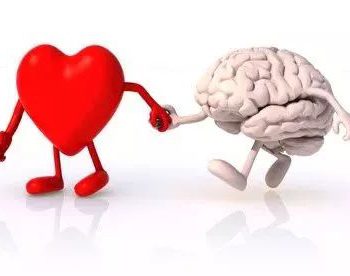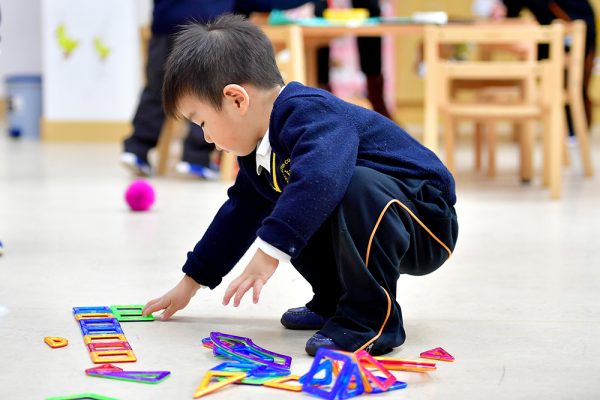We are INTELLECTUAL
Wellingtonians must move into the world able to think critically and to engage in deep learning. They will be able to study beyond the bounds of any curriculum, to be inquisitive and ask questions of everything around them, and be imbued with a love of life-long learning.
——Julian Thomas,Master, Wellington College
What does it mean to be intellectual?
From the Latin
intellectualis from
intellectus (understanding) from
intellegere (understand). Oxford English Dictionary.
Einstein said, “The true sign of intelligence is not knowledge but imagination.” Socrates said, “I know that I am intelligent, because I know that I know nothing.” For centuries, philosophers have tried to pinpoint the true measure of intelligence. More recently, neuroscientists have entered the debate, searching for answers about intelligence from a scientific perspective.

The 20th century produced three major theories on intelligence. The first, proposed by Charles Spearman in 1904, acknowledged that there are different types of intelligence but argued that they are all correlated—if people tend do well on some sections of an IQ test, they tend to do well on all of them, and vice versa. Decades later, Harvard psychologist Howard Gardner revised this notion with his Theory of Multiple Intelligences, which set forth eight distinct types of intelligence and claimed that there need be no correlation among them; a person could possess strong emotional intelligence without being gifted analytically. Later in 1985, Robert Sternberg, put forward his Triarchic Theory of Intelligence, which argued that previous definitions of intelligence are too narrow because they are based solely on intelligences that can be assessed in IQ test. Instead, Sternberg believes types of intelligence are broken down into three subsets: analytic, creative, and practical.
http://bigthink.com/going-mental/what-is-intelligence-2
Successful intelligence is the kind of intelligence used to achieve important goals. People who succeed, whether by their own standards or by other people’s, are those who have managed to acquire, develop, and apply a full range of intellectual skills, rather than merely relying on the inert intelligence that schools so value. These individuals may or may not succeed on conventional test, but they have something in common that is much more important than high test scores. They know their strengths; they know their weaknesses. They capitalise on their strengths; they compensate for or correct their weaknesses.
https://thesecondprinciple.com/optimal-learning/sternbergs-views-intelligence/
Sternberg proposes three intelligences in human cognition:
- Analytical intelligence is the ability to analyse and evaluate ideas, solve problems and make decisions
- Creative intelligence involves going beyond what is given to generate novel and interesting ideas
- Practical intelligence is the ability that individuals use to find the best fit between themselves and the demands of the environment

The three intelligences, or as he also calls them three abilities, comprise what Sternberg calls
successful intelligence: “the integrated set of abilities needed to attain success in life, however an individual defines it, within his or her sociocultural context.” Sternberg argues not only that intelligence is a developing and context dependent notion, but also that traditional measures of intelligence such as IQ tests capture only a part of what it means to be intelligent, which he defines as the ability to adapt flexibly and effectively to the environment. More than mere analytical ability, humans need creative and practical abilities to succeed in their life pursuits.
https://www.intelltheory.com/practicalintelligence.shtml

Emotional intelligence is defined as the ability to identify and manage your own emotions and the emotions of others. It is generally said to include three skills: emotional awareness; the ability to harness emotions and apply them to tasks like thinking and problem solving; and the ability to manage emotions, which includes regulating your own emotions and cheering up or calming down other people.
https://www.psychologytoday.com/basics/emotional-intelligence
“If your emotional abilities aren’t in hand, if you don’t have self-awareness, if you are not able to manage your distressing emotions, if you can’t have empathy and have effective relationships, then no matter how smart you are, you are not going to get very far.” Daniel Goleman, Ph.D., author of Emotional Intelligence: Why It Can Matter More Than IQ.
https://www.success.com/article/7-qualities-of-people-with-high-emotional-intelligence
Seven characteristics of emotionally intelligent people are:
- They’re change agents
People with high EI aren’t afraid of change. They understand that it’s a necessary part of life—and they adapt
- They’re self-aware
They know what they’re good at and what they still have to learn—weaknesses don’t hold them back. They know what environments are optimal for their work style
- They’re empathetic
The hallmark of EI, being able to relate to others, makes them essential in the workplace. With an innate ability to understand what others are going through, they can get through difficult times drama free
- They’re not perfectionists
While extremely motivated, people with EI know that perfection is impossible. They roll with the punches and learn from mistakes
- They’re balanced
Their self-awareness means that they naturally know the importance of and how to maintain a healthy professional-personal balance in their lives. They eat well, get plenty of sleep and have interests outside work
- They’re curious
An inborn sense of wonder and curiosity makes them delightful to be around. They don’t judge; they explore the possibilities. They ask questions and are open to innovative solutions
- They’re gracious
People with high EI know every day brings something to be thankful for—and they don’t see the world as “glass half-empty” as a lot of people do. They feel good about their lives and don’t let critics or toxic people affect that

To become emotionally intelligent adults, we must support personal, social and emotional development in the child. It starts early, as all worthwhile journeys do.



